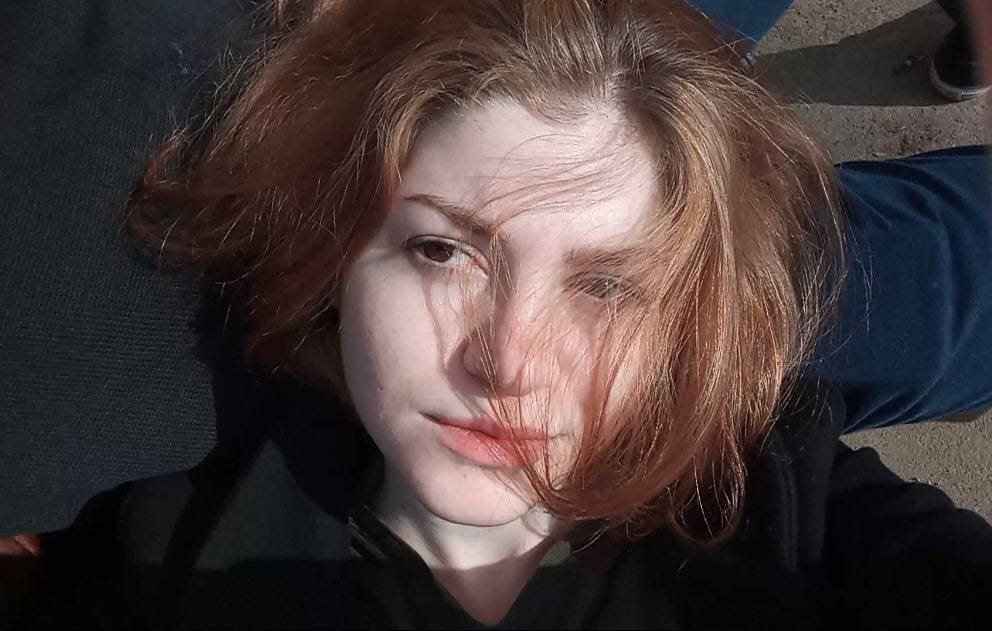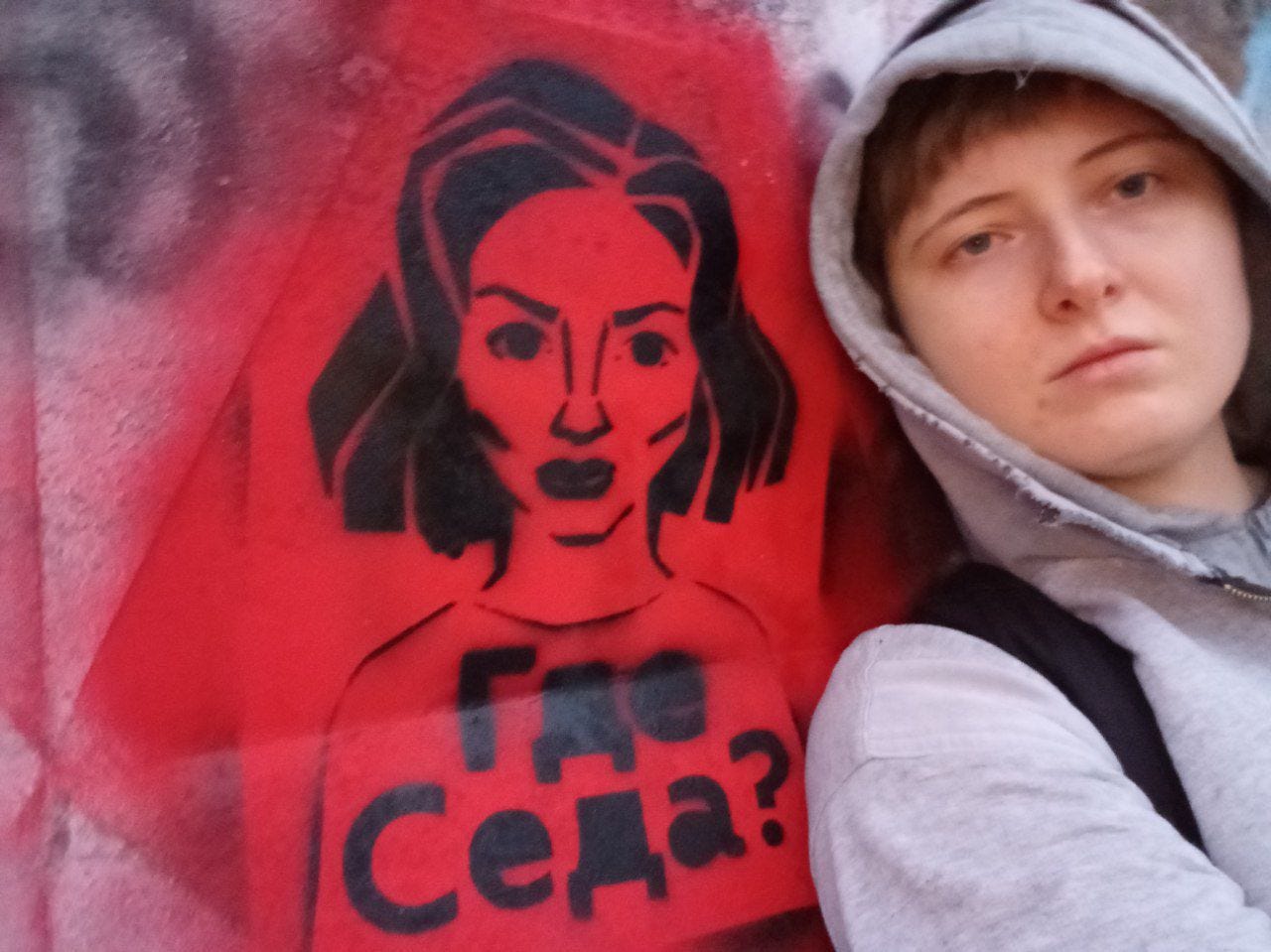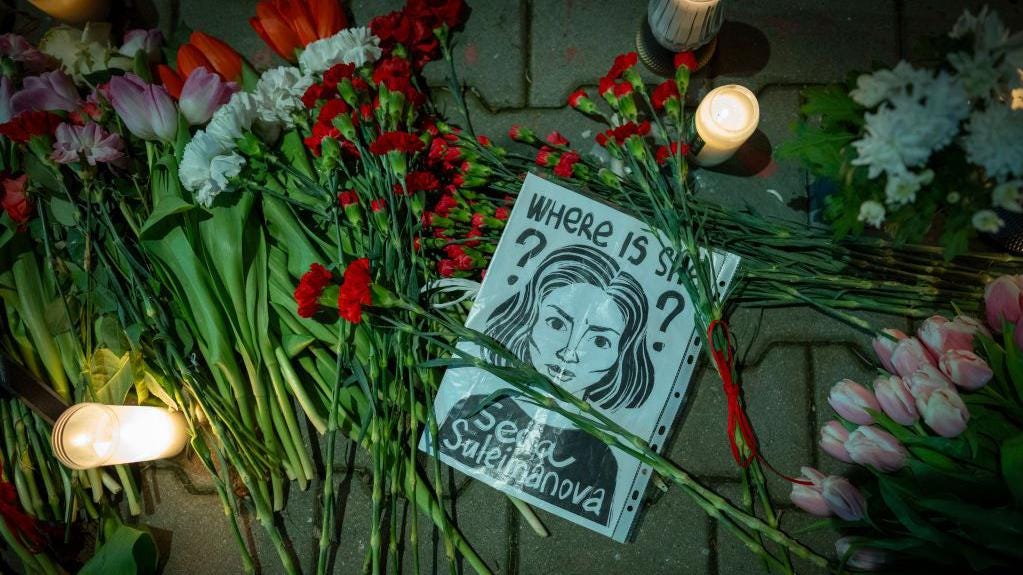'Don't look for me': Fleeing Chechnya in search of freedom
Three young women, Seda, Lia and Aminat escaped from controlling families and an oppressive society. But their lives took different turns in their quest for freedom.
By Zlata Onufrieva & Cagil Kasapoglu, BBC News Russian & BBC 100 Women.
Nineteen-year-old Liya Zaurbekova was trapped in a Moscow police station. Her father and other male relatives were waiting outside to take her home to Chechnya, against her will.
She was terrified the police would hand her over so she messaged women's rights campaigner Svetlana Anokhina with a plea for help.
"I told her to quickly record a video appeal from the police station, explaining what was happening," Svetlana says.

Filming herself, Liya said she had left home because she was under physical and psychological pressure.
The result, when Svetlana posted the message online, was almost instant. Journalists and activists rushed to the scene to urge police to protect her.
Meanwhile Liya left via a back exit, together with a lawyer sent by Svetlana, and drove to a Moscow airport, where she boarded a flight and escaped to safety.
A week later, Liya posted another video on social media: "I am safe now. Please don't look for me."
From her place in hiding she sent BBC 100 Women a voice note explaining why she had been desperate to escape.
"My decision to leave was driven by a desire for freedom and fulfilment. I was dreaming of studying, working, and living independently. If I had stayed in Chechnya, I wouldn't have been able to follow my dreams," she said.
"Men in Chechnya are raised with the belief that women must submit to them.
"My father always dictated what my mother could do, and she had to obey without questioning. I didn't want that for myself."

Under Putin's key ally
Liya's escape, in May this year, drew attention to Svetlana Anokhina's work, and her group, Marem, received 35 requests for help in the next 15 days.
Marem was founded to provide legal and psychological support to young people fleeing domestic violence allegedly inflicted on them by their families across the North Caucasus, a mountainous region between the Black and Caspian seas.
Svetlana comes from Dagestan, but she left Russia in 2021 after security forces raided the women's shelter she ran.
Many requests for help Marem receives come from young women in Chechnya, a deeply conservative majority-Muslim republic ruled since 2007 by Ramzan Kadyrov, a key ally of Russian President Vladimir Putin.
In 2018 he said Chechen men could take up to four wives, even though polygamy is banned in Russia. He has encouraged women to wear headscarves and is accused of permitting forced marriage.
But his loyalty to the Russian leader makes him untouchable, activists say.
"A person in Chechnya is not free, and a woman is three times less free," says Svetlana.
"What do people want from a woman in the North Caucasus, and particularly in Chechnya? They want her to be obedient. Selfless. Quiet. Compliant.
"Often, they take her out of school at the age of 12. Often, they don't let her work. More and more women are prevented from leaving the house."

For some women, social media has become a vital tool to express themselves, and Marem often receives messages via Instagram or Telegram. It replies with a list of questions and in the most serious cases an evacuation is planned.
Often this happens in secrecy, but in cases like Liya's publicity is essential.
"There are cases where without posting on social networks, without online activity, without involving journalists and bloggers who rush to the scene right away, we wouldn't be able to assist," says Svetlana.
She says the young woman may "simply and mostly likely be quietly handed back to her relatives. No lawyer can defend her. They'll just hand her over and then she'll disappear somewhere."
Even when women are thousands of kilometres from Chechnya, they are not necessarily safe. By running away, a daughter is perceived to have brought dishonour on her family, and persistent efforts may be made to find her.
Life as a 'free woman'

One of the first Chechen women to go public about her escape was Aminat Lorsanova.
Now 26, Aminat left her family in 2019 on her fourth attempt. Two years later, she posted a video alleging that she had been a victim of domestic abuse.
She now lives in Western Europe where she has been granted asylum.
"I was escaping the patriarchal tyranny in Chechnya," she says.
"It's a radically aggressive patriarchy where women are controlled in every aspect of life."
After years in hiding, she is now starting life as a "free woman".
"Freedom is when you don't have to hide when you've done nothing wrong," she says. "Freedom is also when you are not afraid of being judged or threatened."
But not all stories of women trying to escape Chechnya end well.
Fake crime reports
Seda Suleymanova left her family in 2022, when she was 25, and became a roommate of Lena Potyaeva in St Petersburg, 2,000km (1,500 miles) to the north.
"We bonded instantly," Lena says.
"She is quite an athletic person. She loves skateboarding, and she is good at it."
Lena avoids using the past tense when talking about Seda, but events have led Seda's friends to fear she has been killed by male relatives.
It all started after she found a job at a coffee shop. Somehow her family found out - and one day her cousin walked through the door.
CCTV footage shows Seda sitting with her head bowed, and her cousin standing talking to her.
"You are disgracing us with your actions," he says. "Where do you live now? Give me your address. We caused a huge stir with the police, here and in Moscow. We have been searching for you."
Seda's cousin didn't take her with him, but activists warned her she would only be safe if she left the country.
"At first, she was keen to go but then started having doubts and decided to stay in Russia," Lena says.
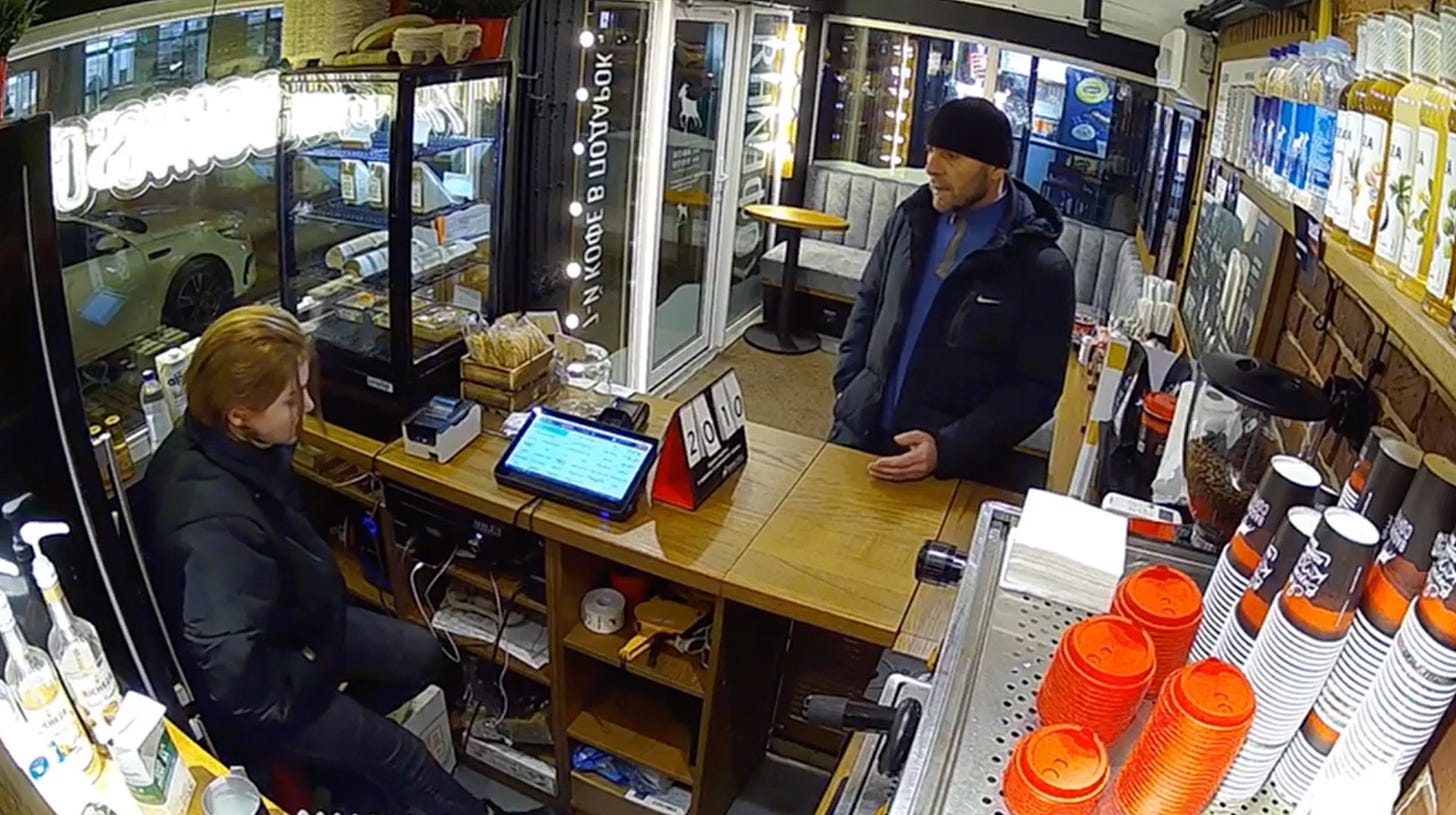
"Starting a new life in a foreign country, without help or support from anyone, wasn't something she wanted to do."
Next time it was the police who came looking for Seda.
According to David Isteev, head of the North Caucasus SOS Crisis croup which helps the LGBTQ+ community and women at risk in the region, since 2023 families have started accusing their daughters of crimes, or naming them as witnesses.
"Usually, the mother or another relative files a report to the Chechen police, stating that either money or jewellery have gone missing and, as part of the investigation, police across Russia can hold the young woman in custody for interrogation.
"They then hand her over to the police of the region where the crime was allegedly committed." The local police, in turn, hand her back to the family.
'Where is Seda?'
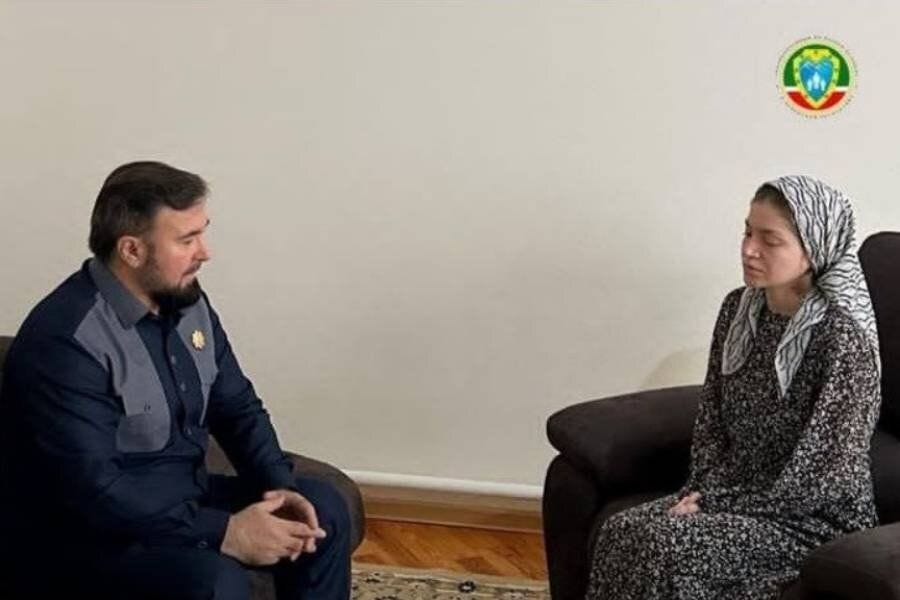
This appears to have happened to Seda.
She disappeared from a St Petersburg police station in August 2023, Lena says.
The following month, she was seen in a video shared on Telegram by Chechnya's Human Rights Commissioner, Mansur Soltayev. He assured followers that Seda was "safe" and accused activists of spreading false information.
In photographs taken in St Petersburg, Seda is seen wearing jeans, with short ginger hair, and smiling. The image from Chechnya looks like a completely different person: wearing a long black dress and headscarf, she walks one step behind Soltayev, staring at the floor.
None of Seda's St Petersburg friends have heard from her since.
They started a campaign asking 'Where is Seda?' and eventually a murder investigation was launched. In February she was officially listed as a missing person.
"They still haven't found Seda dead or alive. I'll continue to speak up until I get to the bottom of it," Lena says.
"Either Seda Suleymanova will be freed and everyone will see she's alive. Or if she's been killed, I'll fight for justice until those responsible are punished."
BBC 100 Women approached the Chechen and Russian authorities for comment but did not receive a response.
In his annual report to the Chechen parliament in June, Human Rights Commissioner Mansur Soltayev said his office had found no evidence of a single human rights violations in the republic in 2023.
“My husband, the occupier"
The changing relationship of Russian military wives to the war in Ukraine – and to the men they love.




